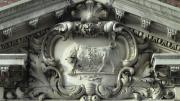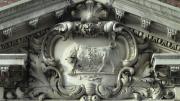President Drew Faust and Corporation senior fellow William F. Lee on December 5 brought an end to 19 months of formal faculty debate about and challenges to the College’s sanctions on undergraduate membership in unrecognized single-gender social organizations (USGSOs: final clubs, fraternities, and sororities). At the monthly Faculty of Arts and Sciences (FAS) meeting that afternoon, Faust read a statement from the Corporation, announcing that the policy promulgated in May 2016 by College dean Rakesh Khurana, and accepted by Faust, would be implemented. Accordingly, current freshmen and their successors will be prohibited from serving as leaders of recognized social organizations and clubs, or as captains of athletic teams, and from receiving the required endorsement for academic fellowships such as the Rhodes and Marshall scholarships, if they belong to a USGSO. (Read a full account here.)
In choosing to adopt the policy, Faust and her fellow Corporation members signaled their sense of urgency on the subject (“the University must act”), and their rejection of alternative courses: a proposed outright ban on membership in a USGSO, or a third option, which might have involved concerted efforts to change the undergraduate culture of pursuing social life that is associated, particularly, with the long-established male final clubs that own Harvard Square facilities and have the means to stage parties.
The Faust-Lee statement focused especially on those clubs and on “eliminating the allocation of social opportunities on the basis of gender.” It described the sanctions regime as one that “does not discipline or punish the students,” because they would remain in good standing within the College otherwise (albeit excluded from other leadership positions or fellowships), even if they decide to join a USGSO. In fact, tricky problems of implementation remain: because membership is not public, the College does not know who belongs to what organizations. Dean Khurana promises clarification on these matters early in 2018.
The Corporation has reserved the right to revisit the policy within five years—an option that strongly suggests it will move more forcefully against the final clubs and similar entities if the sanctions neither cause them to become gender-neutral, nor incentivize the student body to turn away from membership. For now, the issue—at least as a matter of policy—has been resolved before the Corporation announces Faust’s successor as president, even though the details about enforcement, and longer-term effects resulting from faculty members’ concerns about governance, may linger. (An analysis of some of those issues—and of the wider repercussions of the protracted, bruising debate within FAS on the narrow issue of sanctioning student membership in legal social organizations, and broader questions about undergraduate social life—appears here.)








